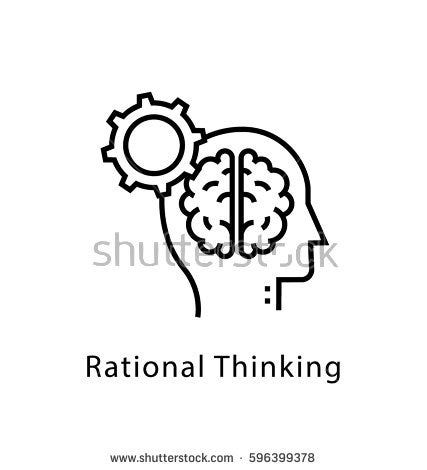Rationality debate

Over the years, my understanding on this subject has gone deeper and deeper. The reason I keep studying and delving on this topic is 02 folds.
First of all, rationality and its derivatives are directly linked to my profession. Financial markets are nothing but a play of human emotions, for every buyer, there is a seller and both have their reasons, either rational or rationalized.
Second is because rationality and lack of it has direct connotation with self realization and self awareness, another topic of my interest. It deserves a separate blog some other day.
Broadly speaking, I feel rationality seekers would do well to divide the entire material into 02 sects.
Rationality of an academician and Rationality of a practioner
It is a very important distinction and one which would make all the difference. Rationality of an Academician is hollow, written only to sell the damn books, gain tribesmen/twitter followers or win a few IVY League awards. There is nothing more to it, it reads like fiction and talks about cause and effect relationship and generalizes everything to its mundane utility.
Einstein said it the best
Everything Should Be Made as Simple as Possible, But Not Simpler
Let us dig deeper and with an example to bring home the point.
I was speaking with a senior and well acclaimed trader when he divulged that one of his trades went bad and he kept averaging it and kept hedging it for good 2 years and finally came out a winner in that trade. (Position sizing was such that it was well within his risk management parameters)
Now a thaler or a dobelli follower will be quick to pounce on this evidence and label it IRRATIONAL BEHAVIOR.
And make no mistake, for the sake of the trade taken in ISOLATION, this act was nothing short of stupid.
But trading as in life is never in ISOLATION. Every act has a memory and is interlinked.
When I gave him the rationality rebuttal, this trader told me, F&*^k rationality, this one trade has instilled such confidence in my being that I know I can come out of any deep hole and win. That confidence ladies and gentlemen cannot be quantified by academic professors and is the reason successful traders nail the market.
Another example.
Common wisdom is to never square off your winners, let the winners keep on rolling. Taking partial profits is NOT recommended for a rational being.
In fact a famous Indian investor once told me, would you sell your kitchen, if the price of your house is increasing.
And yet practicing traders would tell you a simple concept of Playing with the house’s money. Using Kelly criteria betting on the “FREE MONEY” is such a powerful tool.
A thaler would tell you that there is no such thing as Free money, it is irrational to create a segregation in your mind.
And theoretically, ofcourse he is right and he can win a nobel for that, for all I care.
But for all practical purposes, for an actual practioner, FREE MONEY or the house’s money is a powerful concept and which can allow you to practice Kelly betting on your next bets making you a rich man, which btw, you cannot do on your principal amount, for you run a serious risk of ruin.
Bottom line is just look deeper, what is the incentive, who is writing it. You cannot expect an academic to write something which will have any practical utility.
So read a book written by an academician as you would read fiction and re read and imbibe the ones written by a DOER.

